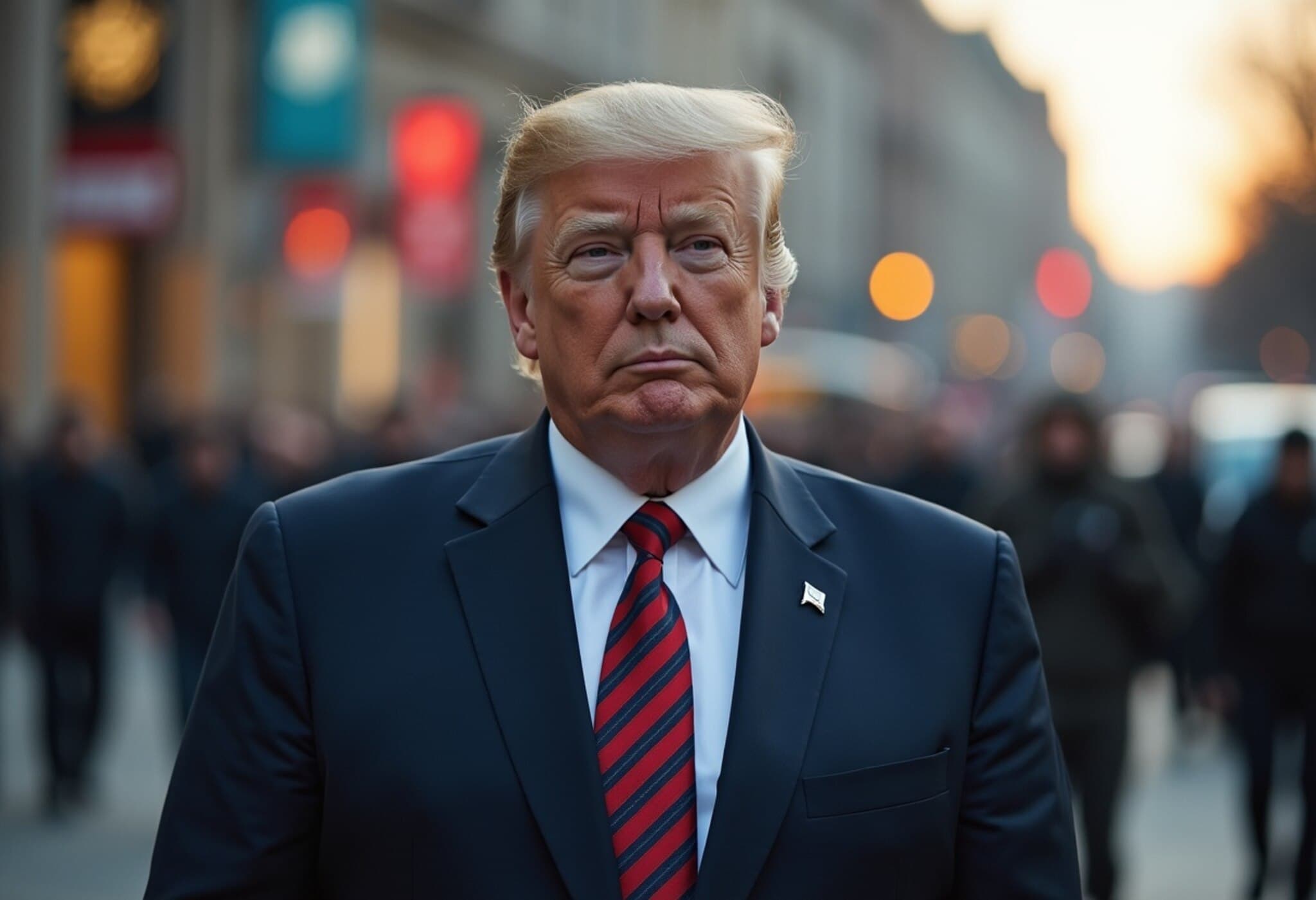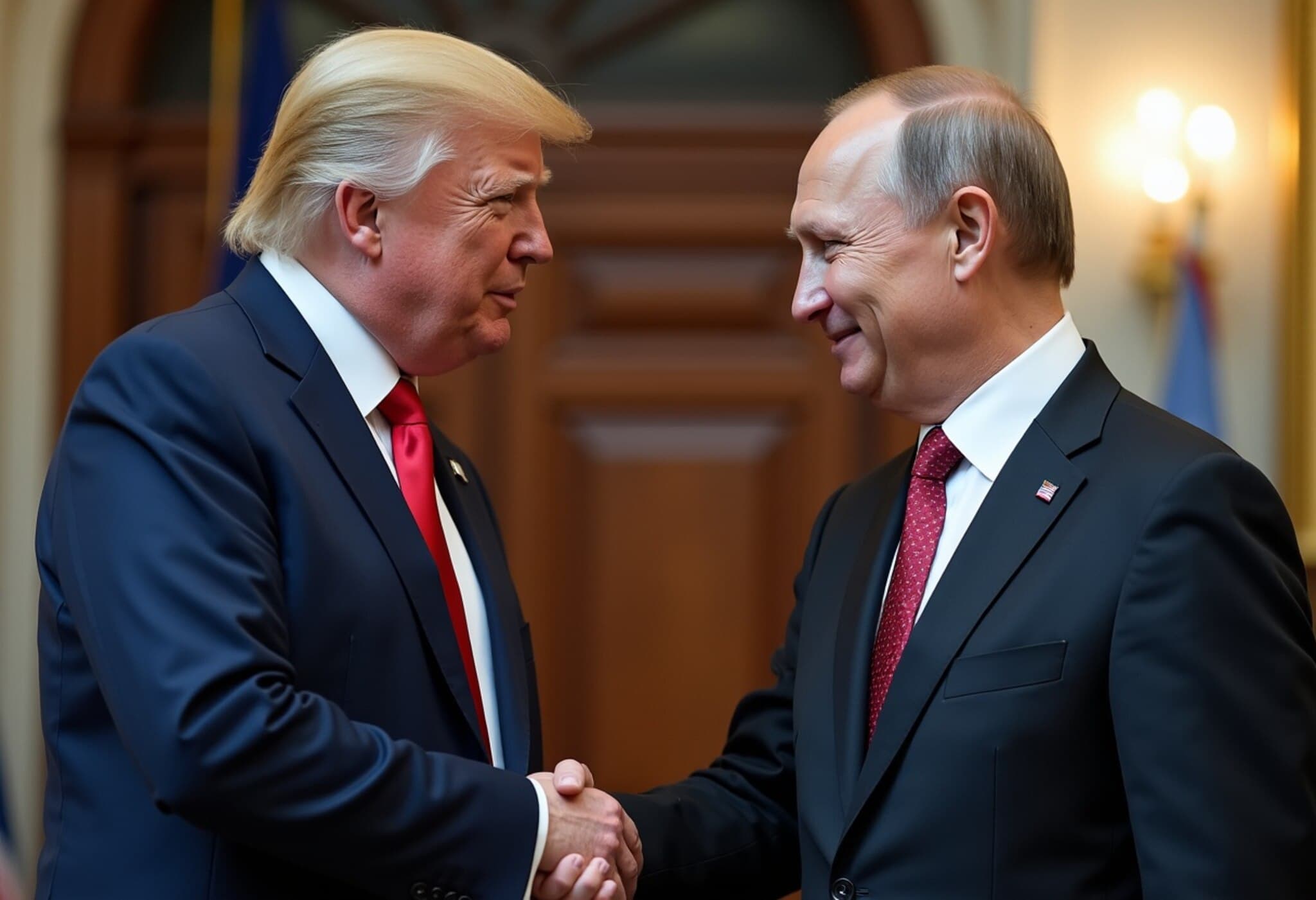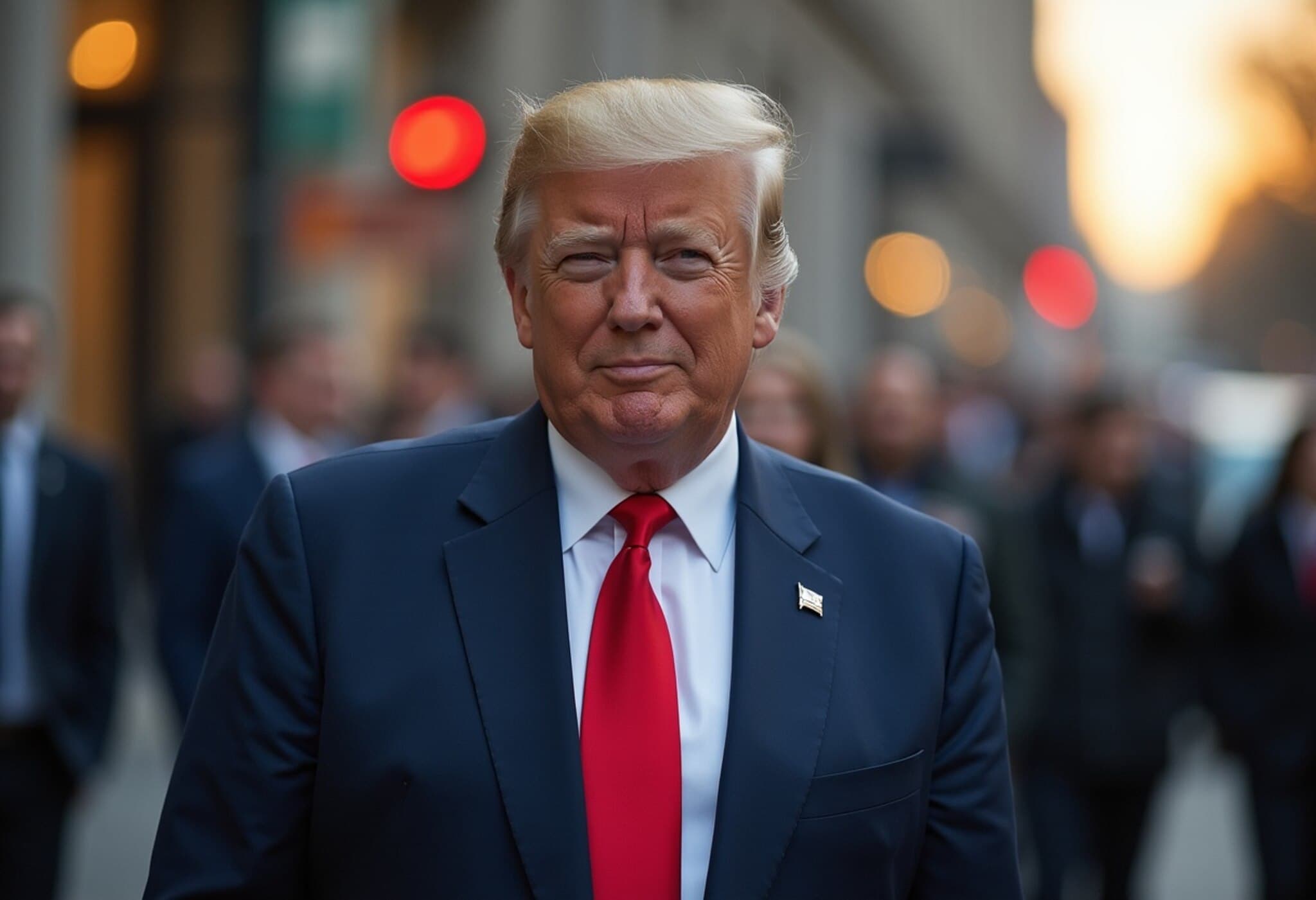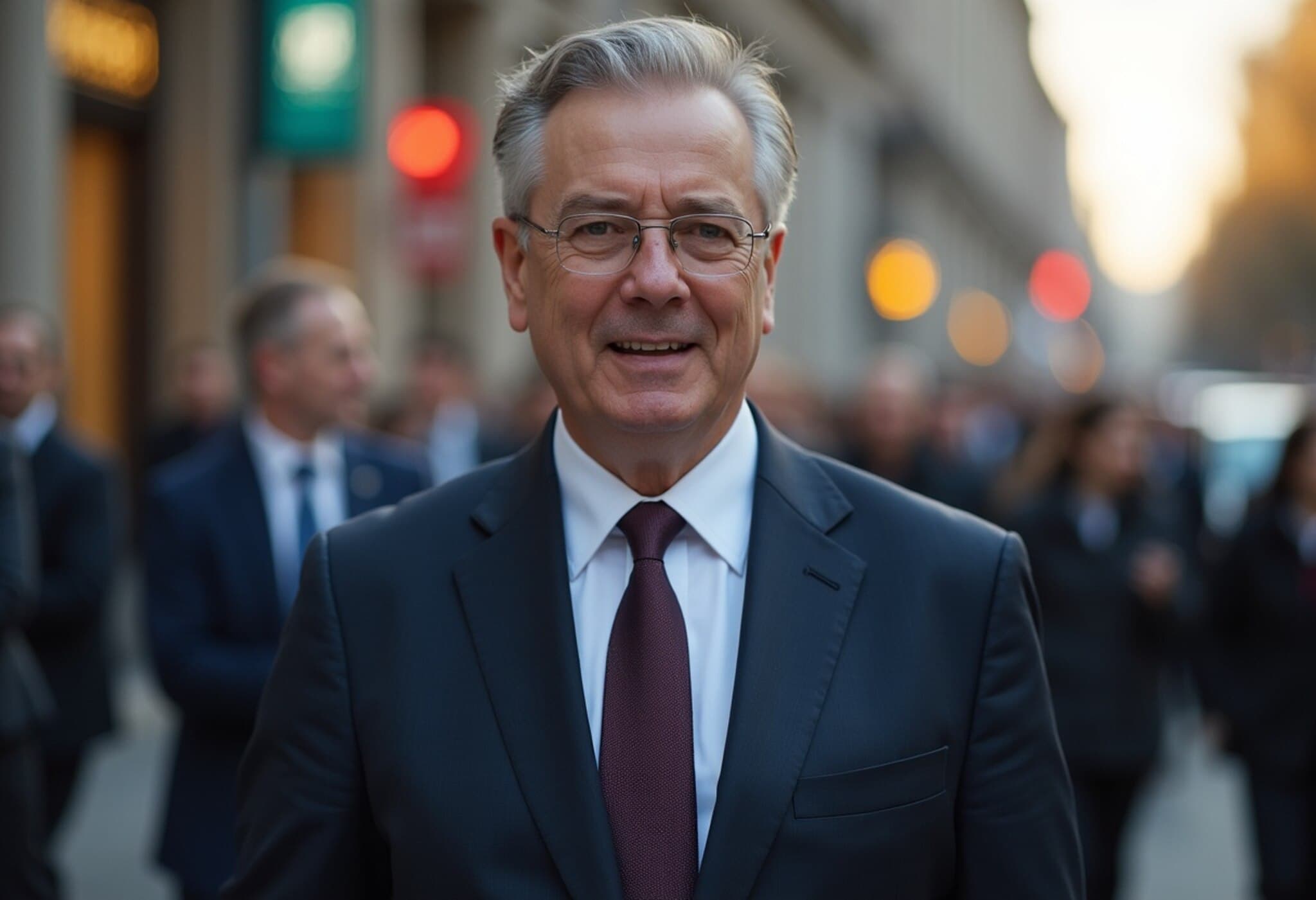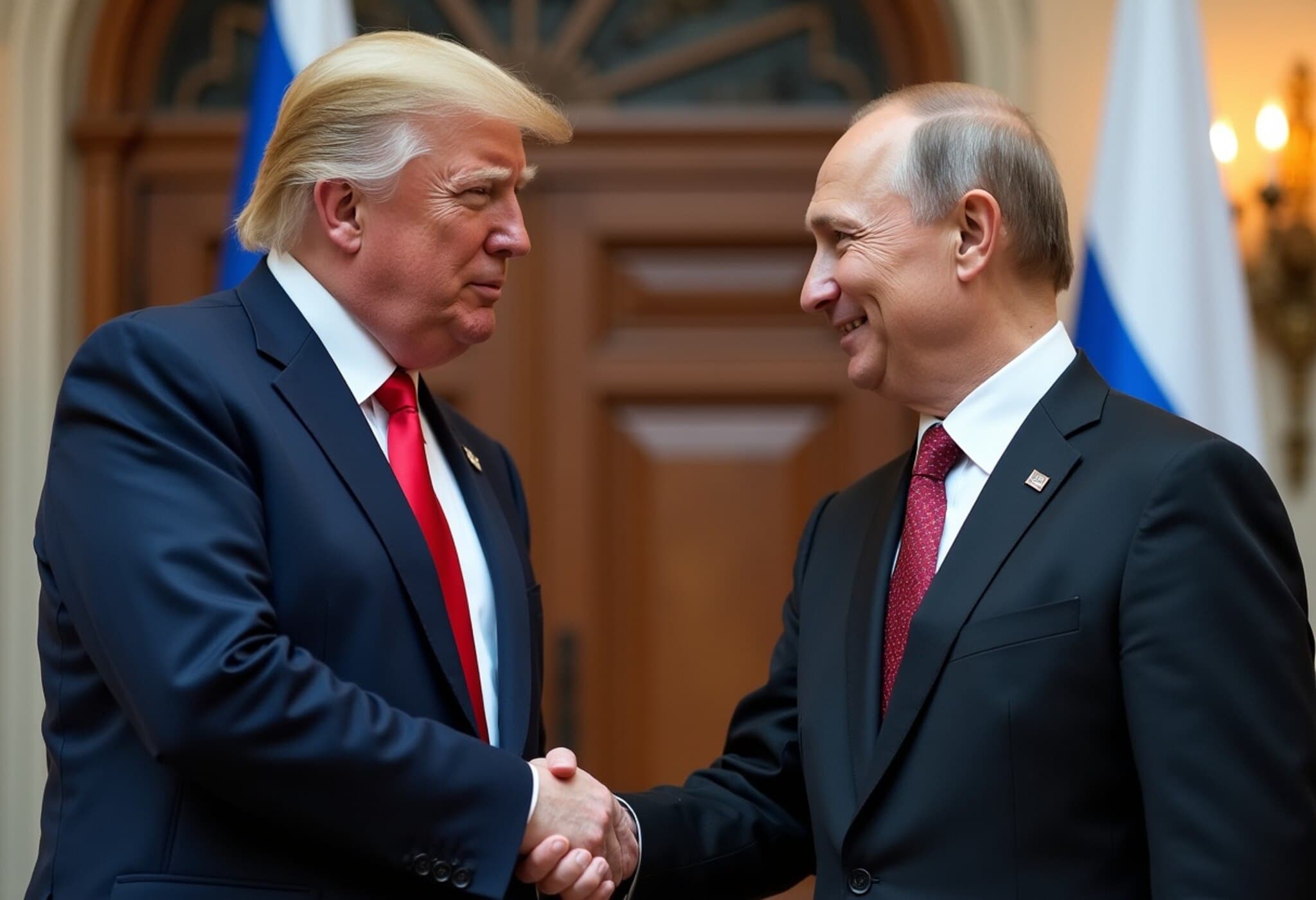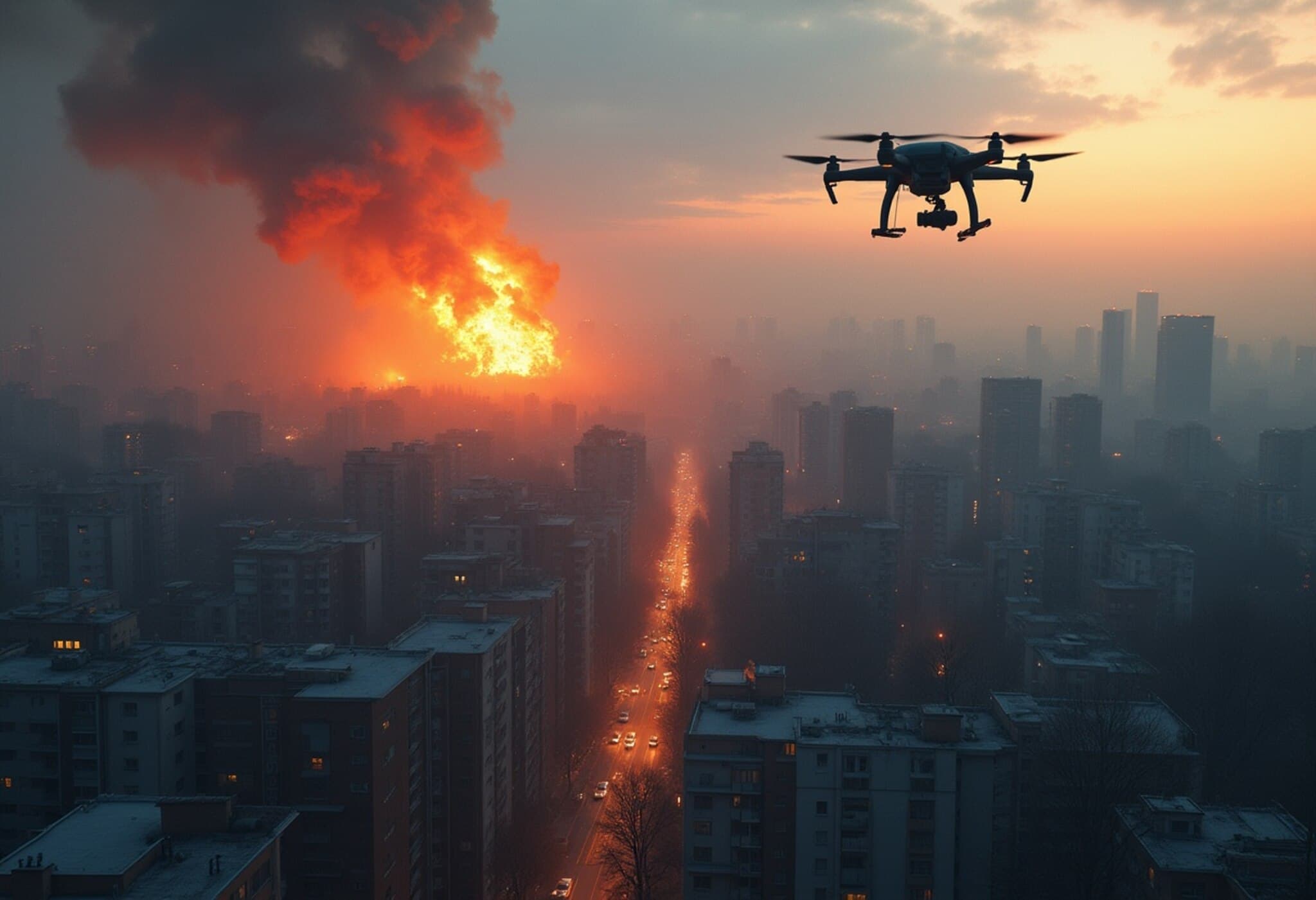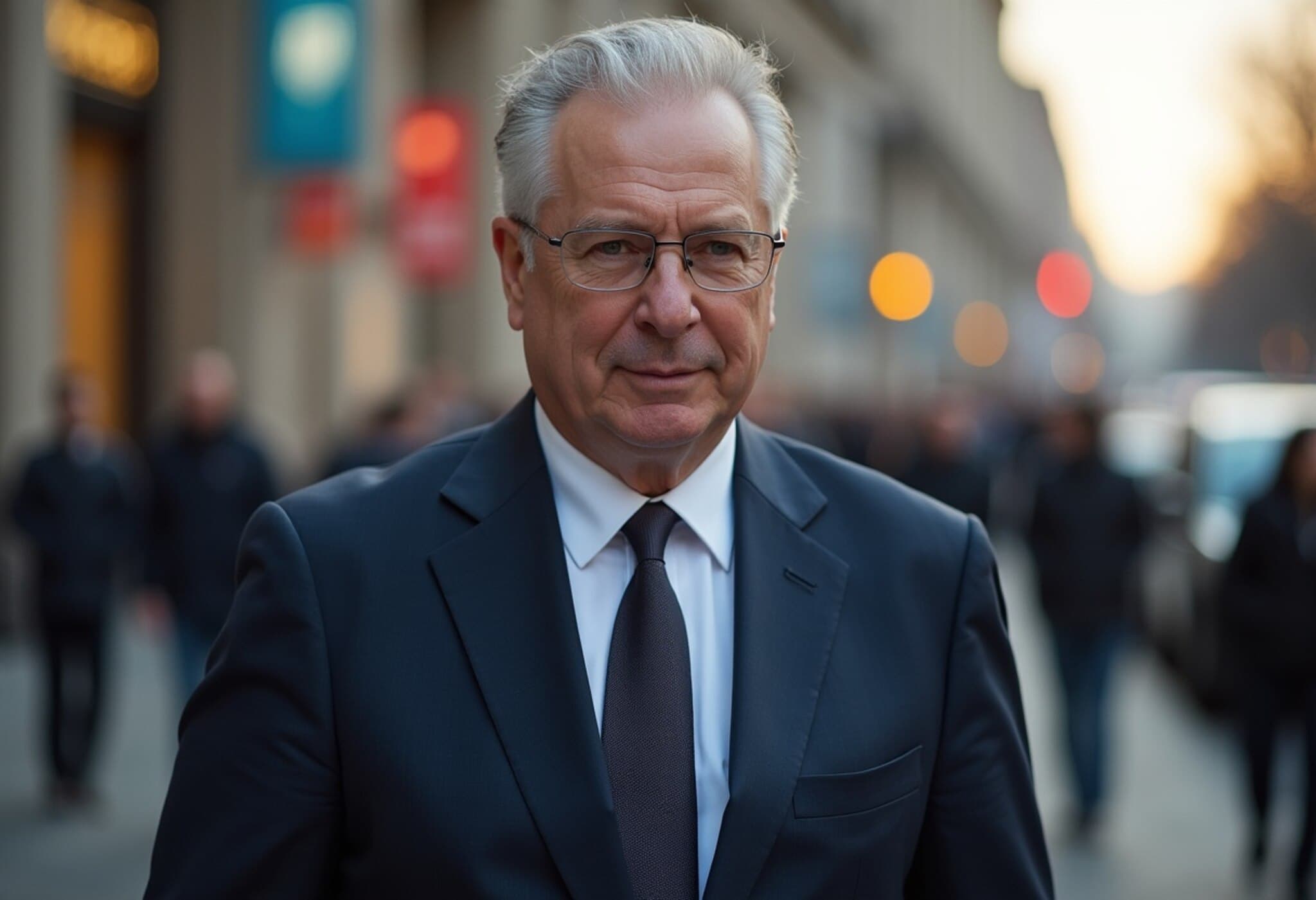Ukraine's President Zelenskyy Rejects Any Territorial Concessions to Russia
In a resolute statement this Saturday, Ukraine’s President Volodymyr Zelenskyy declared unequivocally that Ukraine will never surrender its territory to Russian occupiers, directly rebutting U.S. former President Donald Trump’s suggestion that a peace agreement might involve a territorial exchange between Ukraine and Russia.
Speaking on his official Telegram channel, Zelenskyy emphasized, "The answer to Ukraine's territorial question is already in the constitution of Ukraine. No one will and no one can deviate from it. Ukrainians will not give their land to the occupier." This response reflects Ukraine’s historical and legal stance against any loss of sovereignty, underscoring the nation's resilience amid one of Europe’s gravest military conflicts since World War II.
Trump’s Controversial Meeting Plans with Putin Stir Diplomatic Uncertainty
Donald Trump announced on social media a planned meeting with Russian President Vladimir Putin scheduled for next Friday in Alaska — an announcement that caught many observers off guard due to its lack of clarity and the absence of any mention of Ukraine’s involvement.
Later, during a White House appearance, Trump floated the possibility that part of the ceasefire talks might involve “swapping of territories to the betterment of both” sides. However, crucial details, including whether Ukrainian President Zelenskyy would participate, remain murky, fueling skepticism about the potential outcomes and the sincerity of the proposed negotiations.
White House’s Position and Russian Demands
A White House official confirmed that Russia has submitted a list of demands as conditions for a ceasefire. These include demands that Ukraine relinquish all territories Putin claims — notably the eastern regions of Luhansk, Donetsk, Zaporizhzhia, Kherson, and the Crimean Peninsula — alongside a permanent ban on Ukraine joining NATO.
These terms, viewed as non-starters by Kyiv and its Western allies, reflect Moscow’s strategic aims to reshape Ukraine’s sovereignty entirely. Yet, the control of these regions remains contested, with Russian forces not fully occupying all claimed territories.
Why Ukraine Rejects Territorial Concessions
- Constitutional and Sovereign Integrity: Ukraine’s constitutional framework defines and protects its territorial frontiers, leaving no room for forced amendments under foreign duress.
- Security Guarantees: Zelenskyy insists that any resolution must incorporate robust international security guarantees to prevent future aggression.
- National Morale and Identity: For Ukrainians, ceding land would not only be a strategic loss but a severe blow to national pride and collective resilience.
Expert Insight: The Complexity Behind Territory “Swaps”
Peter Watkins, associate fellow at London’s Chatham House, offers a nuanced perspective: “For Russia, this war isn’t merely territorial; it’s about subjugating Ukraine entirely.” Watkins underscores that the proposed “swapping” might not imply a straightforward exchange but could be representative of tentative ceasefire lines or military withdrawals rather than permanent political concessions.
Contextualizing the Alaska Meeting
This meeting between Trump and Putin will be their first since the onset of Russia’s invasion of Ukraine in early 2024. The significance of Alaska as the venue is notable — having previously hosted diplomatic talks between U.S. and Chinese officials under the Biden administration in 2021.
Despite early hopes, analysts caution against expecting any breakthrough. The war’s underlying causes, complicated by geopolitical rivalry and nationalistic ambitions, remain deeply entrenched.
Escalating Violence on the Ground
While diplomatic chess continues, violence in Ukraine intensifies relentlessly. Overnight drone attacks by Russian forces reportedly struck multiple Ukrainian regions, including a tragic incident near Kherson where a minibus bombing killed two civilians and wounded six more.
The Ukrainian Air Force Command confirmed 47 separate drone strikes overnight, with 31 making landfall, demonstrating Russia’s sustained offensive despite international pressure.
Sanctions and the Geopolitical Chessboard
Trump has threatened to impose fresh sanctions and tariffs on Moscow and nations importing Russian goods, aiming to pressure Putin into ceasing hostilities. However, as of Saturday morning, it remains unclear whether these sanctions will be enacted, delayed, or rescinded.
Historical context reminds us that sanctions alone have frequently failed to curb Kremlin ambitions, reinforcing the complexity of crafting effective deterrents without risking broader global instability.
Looking Ahead: The Stakes for Ukraine and the World
The path to peace remains fraught with uncertainty. Ukraine’s unwavering stance on territorial integrity coupled with Russia’s intransigence suggest that any agreement will require intricate diplomatic balancing and robust international guarantees.
The coming meeting in Alaska, while symbolically important, may serve more as a preliminary step in a drawn-out negotiation rather than a conclusive peace summit.
Editor’s Note
The ongoing conflict in Ukraine is not just a territorial dispute; it epitomizes broader struggles over sovereignty, international law, and global power dynamics. Zelenskyy’s firm rejection of territorial concessions highlights Ukraine’s determination to maintain its independence, while Trump’s unexpected meeting announcement exposes the challenges inherent in third-party mediation without full inclusion of key stakeholders.
Traveling beyond the headlines, the question remains: how will international actors balance the urgent need for peace with unwavering respect for Ukraine’s sovereignty? And can diplomatic engagements foster solutions that avoid further human suffering and geopolitical instability?
For readers and policy watchers alike, these unresolved tensions require close attention—not only for what is said but for what remains unsaid in the corridors of power.

